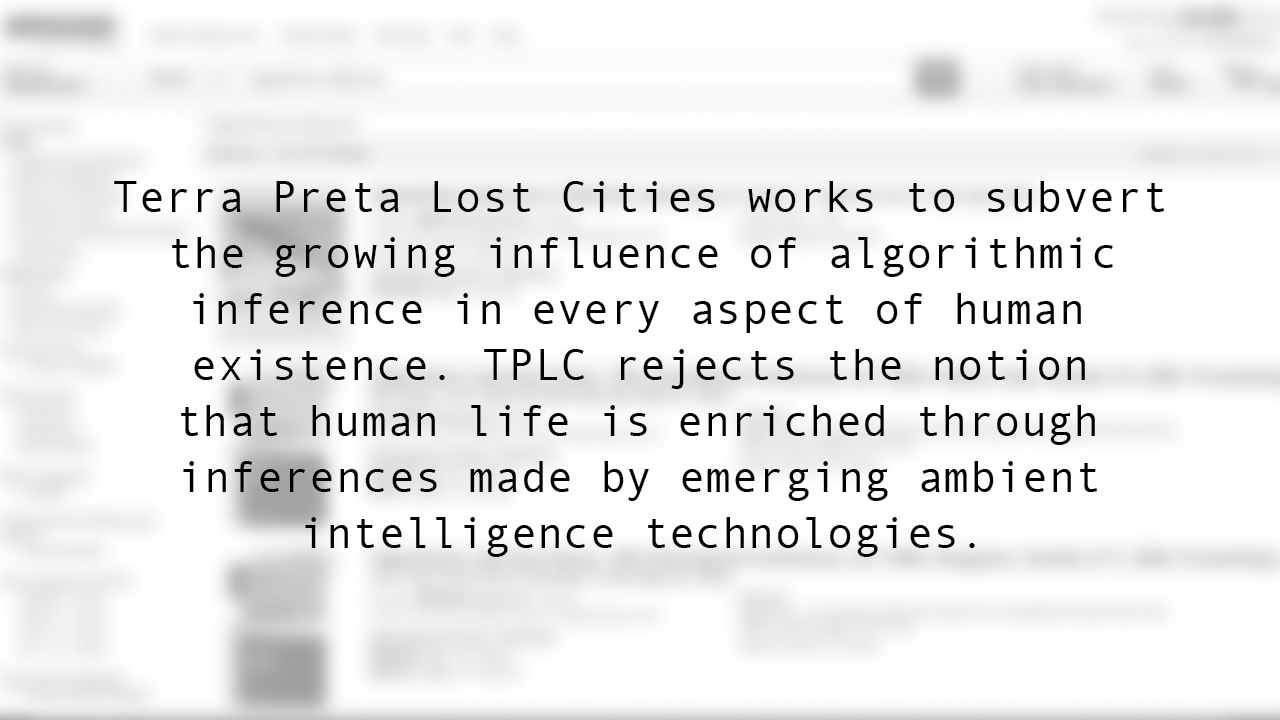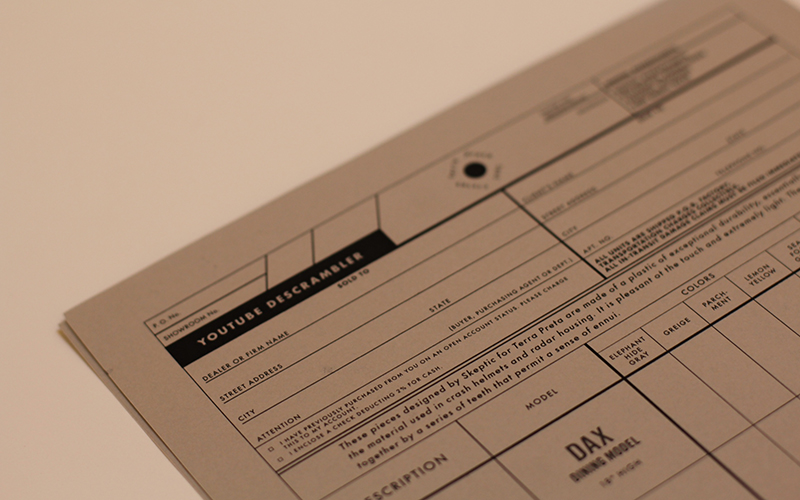/RESEARCH & CREATIVE PRACTICE
Terra Preta Lost Cities and the Youtube Descrambler
(This project originated as part of my work with Skeptic, and was a rich and meaningful collaboration with Daniel James Buckley, Gabi Schaffzin, and John Howrey).
(This project originated as part of my work with Skeptic, and was a rich and meaningful collaboration with Daniel James Buckley, Gabi Schaffzin, and John Howrey).

Stemming from my growing concern over our reliance on, and cultural privileging of, machine-readability, I began to survey scholarly literature about the influence of algorithmic inference and recommendation in our lives and in our collective future.
At the same time as I was engaging in this research, Skeptic (my design firm) had been commissioned to create an installation piece for a design conference in Boston. As we were coming up with ideas for what to do for the installation, we began talking about a problem with the YouTube API that we had encountered—namely, that you cannot search by "unpopularity." This "flaw" in the API, of course, is not a flaw at all, and is quite intentional, catering to YouTube's revenue model and only serving to strengthen the filter bubbles in which we live. Our design intervention therefore explored how to "descramble" YouTube, allowing users to "dig" up content that would otherwise go unseen. (This notion of digging draws on the practice of DJs who are always in the pursuit of the unheard, dusty, rare, unpopular old records to find samples that no one has heard before).
At the same time as I was engaging in this research, Skeptic (my design firm) had been commissioned to create an installation piece for a design conference in Boston. As we were coming up with ideas for what to do for the installation, we began talking about a problem with the YouTube API that we had encountered—namely, that you cannot search by "unpopularity." This "flaw" in the API, of course, is not a flaw at all, and is quite intentional, catering to YouTube's revenue model and only serving to strengthen the filter bubbles in which we live. Our design intervention therefore explored how to "descramble" YouTube, allowing users to "dig" up content that would otherwise go unseen. (This notion of digging draws on the practice of DJs who are always in the pursuit of the unheard, dusty, rare, unpopular old records to find samples that no one has heard before).



A sleek, black box (referencing both "algorithmic black boxes" as well as the cable descramblers from the 1980s), the YouTube Descrambler contains a projector and control system, with its smooth facade only broken by a single affordance: an old hand crank. A user approaches a black box projecting a popular YouTube video on a nearby wall. The user sees the crank arm, and, familiar with this affordance, begins to crank. Immediately the user feels resistance, but as she cranks, she sees another video, beginning to peek out from the bottom of the projection. The more she cranks, the more others crowd around her, encouraging her to reveal the bottom video. This video is an unpopular video, which has been relegated to obscurity by the capitalist meritocratic system embedded in YouTube's algorithms.
To contextualize this intervention, we created a fictitious organization of the near-future, Terra Preta Lost Cities. Based on the name of the nutrient-rich black earth found in the Amazon Basin, TPLC believes that content that sits deep down at the bottom of the pile, things with few "likes", "mentions," "re-blogs," etc., can prove to be fertile ground for meaningful experiences, innovation, and new ideas. It is the goal of the organization to create tools for the revelation and mixing of such content to prompt new lines of inquiry and discourse among members of society. TPLC therefore worked to subvert the growing influence of algorithmic inference and recommendation.
To contextualize this intervention, we created a fictitious organization of the near-future, Terra Preta Lost Cities. Based on the name of the nutrient-rich black earth found in the Amazon Basin, TPLC believes that content that sits deep down at the bottom of the pile, things with few "likes", "mentions," "re-blogs," etc., can prove to be fertile ground for meaningful experiences, innovation, and new ideas. It is the goal of the organization to create tools for the revelation and mixing of such content to prompt new lines of inquiry and discourse among members of society. TPLC therefore worked to subvert the growing influence of algorithmic inference and recommendation.